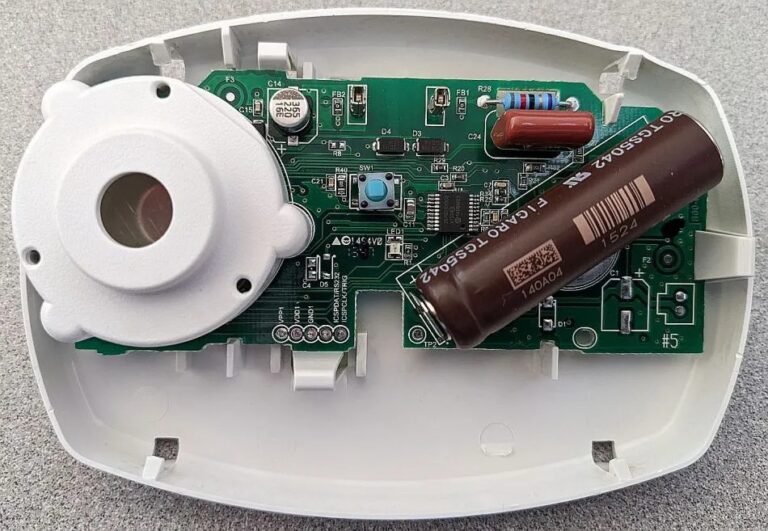Top Neuroscience Conferences in India: The Latest Events You Can’t Miss!

Neuroscience research in India is rapidly gaining momentum, driven by the country’s growing interest in understanding the complexities of the human brain and its impact on health and disease. As the demand for cutting-edge neurological treatments and research expands, Neuroscience Conferences in India 2025 has become a hub for groundbreaking work in this field. With advancements in neurobiology, cognitive neuroscience, and neuroimaging, Indian researchers and institutions are making significant contributions to global neuroscience.
Conferences play a pivotal role in this evolution. They serve as a platform for knowledge exchange, where scientists, doctors, students, and industry professionals gather to discuss new discoveries, share research findings, and brainstorm innovative solutions to complex brain-related challenges. Neuroscience Conferences 2025 also foster collaboration across borders, enabling experts to work together on solving pressing neurological problems, from Alzheimer’s to mental health disorders.
Why Neuroscience Conferences Matter
Attending neuroscience conferences is more than just a chance to listen to lectures or see the latest research posters; it’s an essential opportunity for anyone involved in neuroscience to stay at the forefront of the field. These conferences bring together top researchers, practitioners, students, and industry leaders, creating an environment rich in learning, collaboration, and professional growth.
Key Benefits:
Networking with Experts
One of the greatest advantages of attending neuroscience conferences is the opportunity to network with leading experts, researchers, and innovators in the field. By engaging in discussions and exchanging ideas, you can build relationships that may lead to future collaborations, mentorships, or job opportunities. Whether you’re a student, a researcher, or a professional, these interactions can provide valuable insights and open doors to new projects and partnerships.
Staying Updated with Cutting-Edge Research
Neuroscience is a rapidly evolving field, with new research constantly reshaping our understanding of the brain. Conferences are where the latest findings are often first presented, offering attendees the chance to stay informed about the newest breakthroughs and trends. From advancements in neuroimaging techniques to discoveries about neuroplasticity and brain diseases, attending these conferences ensures you’re not left behind in an ever-changing landscape.
Learning About New Technologies
The field of neuroscience is deeply intertwined with technological innovation. At conferences, you’ll be exposed to the newest tools, methods, and technologies that are revolutionizing research and clinical practices. From state-of-the-art neuroimaging equipment to novel brain-computer interfaces, these events often showcase technologies that can enhance both your research and practical applications, making you more effective in your work.
Career Growth Opportunities
Neuroscience conferences are a fertile ground for professional development. In addition to learning about cutting-edge research and technology, attending these conferences allows you to develop soft skills, such as public speaking, communication, and presenting your work to a wider audience. For young professionals and students, presenting research or networking with industry leaders can lead to internships, fellowships, or even job offers. Conferences also allow attendees to enhance their resumes, showing that they are proactive about their professional growth and committed to staying informed in a competitive field.
Top Neuroscience Conferences in India:
Neuroscience Conferences in Goa
Goa, known for its scenic beaches and vibrant culture, is also emerging as an important destination for neuroscience conferences in India. Hosting some of the most dynamic events in the field, Goa provides a unique environment where attendees can combine professional growth with a refreshing getaway. Neuroscience Conferences in Goa 2025 held here attract international and national experts, offering insights into the latest research, innovative technologies, and the future of brain science. Whether you are a researcher, clinician, or student, attending a neuroscience conference in Goa allows you to immerse yourself in cutting-edge discussions while enjoying the relaxed, coastal atmosphere.
Neuroscience Conferences in Mumbai
Mumbai, India’s financial and cultural capital, also stands as a hub for scientific innovation, particularly in the field of neuroscience. With top-tier universities, research institutions, and healthcare centers, Neuroscience Conferences in Mumbai 2025 regularly hosts high-impact neuroscience conferences. These events bring together a diverse range of professionals—from neuroscientists to healthcare practitioners—offering an exceptional opportunity for networking, knowledge exchange, and collaboration. Mumbai’s dynamic atmosphere ensures that neuroscience conferences here are not only intellectually enriching but also provide attendees with exposure to the latest advancements shaping the field.
Neuroscience Conferences in Delhi
As the capital city of India, Delhi plays a central role in shaping the nation’s academic and research landscape. It is home to several prestigious universities, research institutes, and government organizations dedicated to neuroscience and mental health. Neuroscience Conferences in Delhi 2025 bring together leading experts to discuss topics ranging from neurodegenerative diseases to brain development and neuroplasticity. The conferences in Delhi offer a comprehensive platform for sharing cutting-edge research, exploring the latest clinical practices, and fostering collaborations between researchers, students, and healthcare professionals. Attending these events provides invaluable opportunities for anyone passionate about the brain and its functions.
Neuroscience Conferences in Gujarat
Gujarat, one of India’s leading states in education and research, is becoming a prominent destination for neuroscience conferences. With a growing focus on healthcare innovation and mental health awareness, the region hosts several major events that attract renowned neuroscientists, clinicians, and researchers. Neuroscience conferences in Gujarat 2025 offer an excellent mix of academic presentations, hands-on workshops, and networking opportunities, making it an ideal place for professionals in the field to stay updated on the latest research and technologies. The state’s progressive approach to healthcare makes it a great location for these transformative events.
Neuroscience Conferences in Bangalore
Bangalore, known as the Silicon Valley of India, is a hub for both technological innovation and scientific research, making it a prime location for neuroscience conferences. With its thriving tech ecosystem and world-class research institutions, Bangalore regularly hosts leading events in neuroscience, where experts explore the intersection of technology and brain science. Neuroscience Conferences in Bangalore 2025 often focus on cutting-edge topics such as neuroinformatics, artificial intelligence in neuroscience, and advancements in brain-machine interfaces. For professionals looking to stay at the forefront of both neuroscience and technology, Bangalore offers a dynamic and intellectually stimulating environment for growth and networking.
What to Expect at These Conferences
Attending neuroscience conferences in India offers a dynamic and enriching experience, with a variety of activities designed to engage attendees and provide opportunities for growth, learning, and collaboration. Here’s a closer look at what you can expect at these events:
Typical Sessions and Presentations
Conferences typically feature a blend of keynote speeches, research presentations, and panel discussions. Leading neuroscientists and experts are invited to deliver keynote speeches on the latest trends and breakthroughs in neuroscience. These sessions provide an in-depth look at cutting-edge research, new methodologies, and the future directions of the field.
In addition to keynote speeches, oral presentations by researchers, students, and professionals allow attendees to share their work with an engaged audience. These presentations often focus on specific topics, such as neurodegenerative diseases, cognitive neuroscience, or new neurotechnologies. The sessions are typically followed by Q&A segments, offering attendees the chance to interact with the speakers and engage in insightful discussions.
Workshops and Hands-on Sessions
Workshops are a key feature at many neuroscience conferences, offering a more interactive and practical learning experience. These sessions provide hands-on opportunities to explore new tools, technologies, and methodologies used in neuroscience research. Workshops may focus on topics like neuroimaging techniques, data analysis in brain science, or the application of artificial intelligence in neuroscience. Participants often leave with new skills or knowledge that they can apply in their own research or practice.
Panel Discussions
Panel discussions bring together a group of experts from diverse backgrounds to discuss pressing topics in neuroscience. These discussions cover a wide range of issues, such as the latest research on brain diseases, ethical concerns in neurotechnology, or the role of neuroscience in mental health treatment. Panelists offer different perspectives, providing a well-rounded understanding of the challenges and opportunities in the field. Panel discussions also often include time for audience questions, creating an interactive and engaging environment for attendees.
Poster Presentations
Poster presentations are a hallmark of many neuroscience conferences, allowing researchers to showcase their work in a more visual and informal format. Posters often present recent research findings, experimental results, or case studies in neuroscience. Attendees can walk through the poster sessions, engage with the presenters, and ask questions, creating an excellent opportunity for direct interaction and deeper discussion. Poster sessions foster an open exchange of ideas and allow both early-career researchers and seasoned professionals to showcase their contributions to the field.
Networking Opportunities
One of the biggest draws of neuroscience conferences is the opportunity to network. These events attract a wide array of participants, including academic researchers, industry professionals, healthcare practitioners, students, and entrepreneurs. Networking sessions are often scheduled throughout the event, such as coffee breaks, social events, and luncheons, where attendees can meet and discuss ideas in an informal setting.
Conferences also offer dedicated networking mixers, designed to facilitate connections between professionals with similar research interests or career goals. Whether you’re looking to find collaborators for a research project, seeking advice from an experienced mentor, or connecting with potential employers, these opportunities allow for meaningful interactions that can lead to lasting professional relationships.
Opportunities for Collaboration and Knowledge Sharing
Conferences provide an invaluable platform for collaboration. Many of the sessions, workshops, and discussions are designed to bring together professionals from different backgrounds, fostering cross-disciplinary approaches to solving complex problems in neuroscience. Whether it’s a researcher in neurogenetics collaborating with a neuroimaging expert, or a clinician discussing practical applications of research with a student, the opportunities for knowledge-sharing and joint ventures are abundant.
Moreover, these conferences often highlight collaborative research projects and potential funding opportunities for new ventures in neuroscience. Institutions, universities, and research organizations use these events to showcase their work and seek partnerships with other academic or industry leaders.
Career Advancement
Neuroscience conferences can significantly impact your career trajectory. By attending these events, you can expand your professional network, stay informed about industry trends, and learn about potential job openings, internships, or academic programs. Presenting your own research or findings at these conferences can also boost your visibility in the field, potentially leading to new career opportunities or invitations to collaborate on high-profile projects.
How to Prepare for a Neuroscience Conference
Attending a neuroscience conference is an excellent way to immerse yourself in the latest research and trends in the field. However, to get the most out of the experience, proper preparation is key. Here are some tips to help you maximize your conference experience:
Tips on Getting the Most Out of a Neuroscience Conference
Prepare Questions in Advance
Before attending the conference, review the list of sessions, speakers, and topics to familiarize yourself with the content. Think about any questions or ideas you would like to explore further during the presentations. Preparing thoughtful questions shows your engagement and can spark meaningful conversations with speakers or fellow attendees. You can also ask questions during Q&A sessions to deepen your understanding of specific topics.
Networking Strategies
Networking is one of the most valuable aspects of any conference. To make the most of networking opportunities, be proactive in introducing yourself to fellow attendees, especially those with similar research interests. Have an “elevator pitch” ready: a concise introduction to who you are, what you research, and your goals. Attend social events, coffee breaks, and mixers, where informal networking can lead to more meaningful professional connections. Don’t forget to exchange contact details, and be sure to follow up after the event to maintain the connection.
Manage Your Time Between Sessions
Conferences can be intense, with many sessions happening simultaneously. To avoid feeling overwhelmed, plan your day in advance and prioritize sessions that are most relevant to your interests. Consider mixing sessions that focus on in-depth technical content with those that offer broader overviews to avoid burnout. Take breaks in between sessions to relax, reflect, and network with other attendees. Staying organized will help you absorb more information without feeling rushed.
Importance of Reviewing Conference Material and Previous Research
Review Conference Material
Most conferences provide materials before the event, such as session agendas, speaker lists, and abstracts of the presentations. Take time to review this information thoroughly to understand what topics will be covered and to identify sessions that align with your interests. Having a clear plan for which sessions you want to attend will help you stay focused and get the most out of the conference.
Study Previous Research
If a particular speaker or session interests you, review their previous research beforehand. Knowing their work can help you engage in deeper conversations and ask more specific, relevant questions during the session or in one-on-one discussions. Understanding the research that will be presented can also help you identify trends in the field and enhance your overall learning experience at the conference.
Travel and Accommodation Tips for Out-of-Town Attendees
Book Early
For out-of-town attendees, travel and accommodation can be a challenge, especially during peak conference seasons. Book your flight or train tickets early to secure the best rates. Similarly, reserve accommodation well in advance, preferably near the conference venue, to minimize travel time. Many conferences offer discounted hotel rates for attendees, so be sure to take advantage of those deals.
Plan Your Arrival and Departure Times
Arrive at the conference location a day before the event starts to avoid last-minute stress. This will give you time to familiarize yourself with the venue, pick up conference materials, and attend any pre-conference events. Similarly, plan your departure after the final session ends to ensure you don’t miss out on any key presentations or networking opportunities.
Stay Organized
Carry all the essential items you’ll need, such as conference materials, business cards, a notebook, and a phone charger. It’s also helpful to have a backup plan in case of unexpected travel delays. Stay organized by using digital tools, like apps or calendars, to track your schedule and important meetings.
The Future of Neuroscience in India: How Conferences Contribute
Neuroscience conferences in India are playing a crucial role in shaping the future of research, innovation, and healthcare in the country. These events not only foster collaboration among researchers but also contribute significantly to the evolution of the Indian healthcare system, educational institutions, and global neuroscience communities.
Shaping the Future of Research and Innovation
Conferences in India serve as a catalyst for the rapid advancement of neuroscience research. By bringing together national and international experts, these events provide a platform for the exchange of cutting-edge ideas, research findings, and technological innovations. As the field continues to grow, conferences act as a space where new theories, experimental results, and breakthroughs can be discussed and refined. Attendees have the opportunity to gain insight into pioneering research, which in turn can inspire future innovations and shape the direction of neuroscience research in India.
Impact on the Indian Healthcare System, Educational Institutions, and Research Organizations
Indian Healthcare System
One of the major impacts of neuroscience conferences in India is the potential improvement in the country’s healthcare system. By discussing the latest findings in neurobiology, neurodegenerative diseases, and mental health research, these events influence the development of new treatments and interventions. The knowledge shared at conferences often leads to improved diagnostic techniques, therapies, and care strategies, benefiting both patients and healthcare providers.
Educational Institutions
Conferences also contribute significantly to India’s academic and educational landscape. They offer students and early-career researchers an opportunity to learn from experts, gain exposure to the latest trends, and even present their own research. international conference alerts help build a strong foundation for future neuroscience professionals by exposing them to the best practices, tools, and methodologies in the field. Moreover, conferences often lead to collaborations between universities, strengthening academic ties and encouraging cross-institutional research efforts.
Research Organizations
In addition to healthcare and academia, neuroscience conferences contribute to the growth of research organizations across India. These events create a forum where research organizations can present their work, gain feedback, and forge partnerships. They also highlight the importance of funding and support for neuroscience research, driving greater investment in Indian research institutions and encouraging the pursuit of ambitious projects.
Collaboration with Global Neuroscience Communities
India’s neuroscience conferences also play a vital role in fostering international collaboration. The country’s growing reputation as a center for neuroscience research makes it an attractive location for global experts to gather, exchange ideas, and work on collaborative projects. This collaboration is crucial for advancing the field, as it brings together diverse perspectives, methodologies, and expertise from around the world. Indian researchers are also able to share their unique challenges and innovations with the global community, strengthening India’s position in the global neuroscience landscape.
Attending neuroscience conferences in India offers an invaluable opportunity to stay at the forefront of research, network with leading experts, and contribute to the dynamic growth of the field. From groundbreaking presentations and engaging workshops to the chance to collaborate with international researchers, these events serve as a hub for innovation, knowledge exchange, and professional development.







